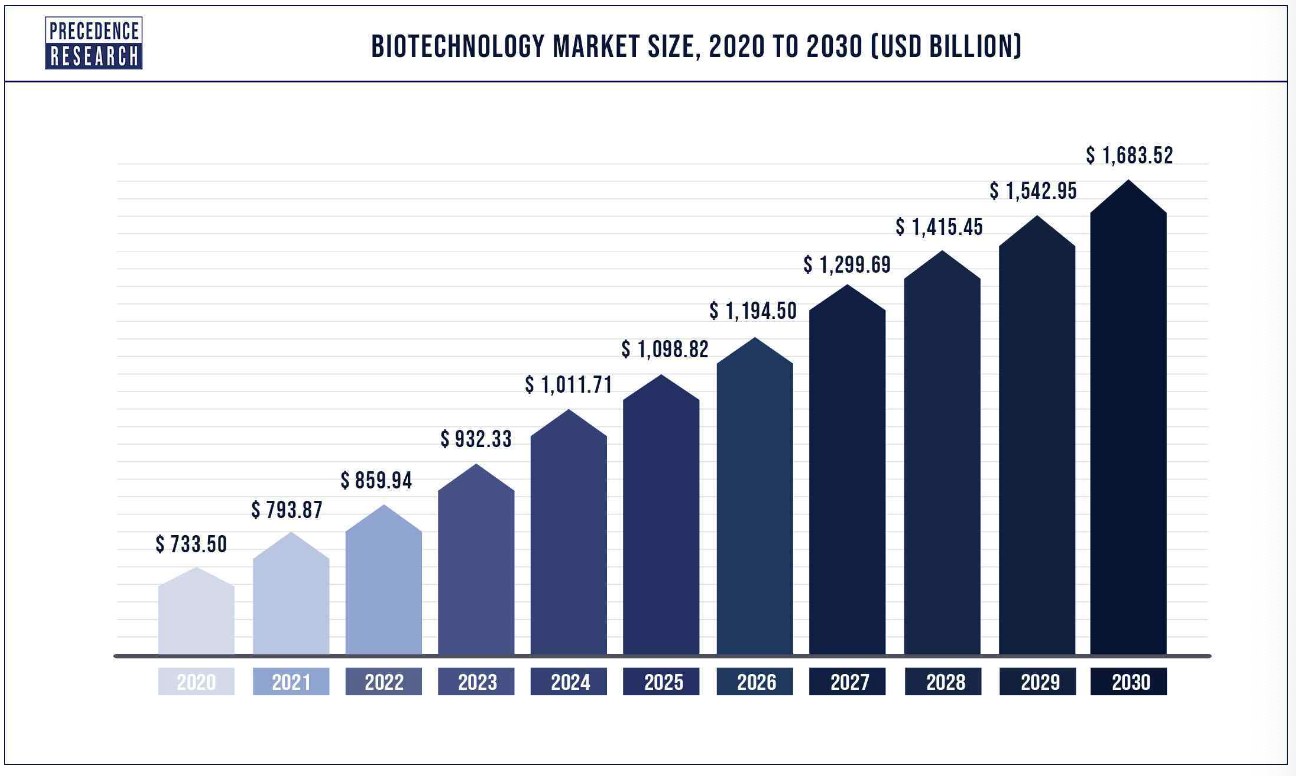|

B. G., Opalesque Geneva: The longevity biotech market is coming to the fore as we are living longer, but not necessarily more healthily.
According to AgingBiotech.info, a non-profit site, interfering with ageing by slowing it and even reversing it is now, based on scientific consensus, possible. Furthermore, it is an imperative cause as it will save lives and reduce suffering. And last but not least, it will be financially lucrative for investors, entrepreneurs and scientists.
Today the sector is estimated to be worth $26.5tln and involves over 50,000 companies, more than 10,000 investors and over 1,000 research and development (R&D) centres.
To learn more about investing in longevity biotech, tune in to our webinar on Wednesday, April 5 (details below).
Addressing the gap between 'healthspan' and lifespan
We may have, around the world, greater life expectancy, but our health expectancy has not followed suit; indeed, we now spend up to a quarter of our lives suffering from chronic diseases that affect our autonomy and quality of life.
According to Kristen Fortney, CEO and co-founder of BioAge Labs, the mission of longevity biotechnology is to develop new drugs that target ageing as a root cause of disease.
Longevity biotechnology has a critical role to play in realising the goals of the United Nations' 10-year global plan for the Decade of Healthy Ageing: helping older people to meet their basic needs, continue to learn and make decisions, retain mobility, and build and maintain relationships.
Her and other clinical-stage companies are targeting muscle ageing to prevent frailty and loss of mobility, brain ageing to prevent cognitive impairment and loss of independence, and immune ageing to fight chronic inflammation and infectious diseases. Other companies are focusing on wearables, the internet of things and connecting clinicians with patients among other things.
Improving health by targeting ageing is not a luxury but a necessity, Fortney says. Ageing populations may drive medical costs and care needs beyond the capacity of younger generations to support their elders, risking the collapse of social safety nets and, ultimately, leading to economic crises. But beyond any economic considerations, older people have a fundamental right to live healthy, full lives.
What investors should be looking at
According to James Peyer, CEO of Cambrian Bio, a New York-based clinical-stage biotech focused on treating and preventing chronic diseases of ageing, investors should be looking at companies creating therapeutics that target the mechanistic drivers of ageing and plan to do clinical trials. "Clinical trials for ageing drugs should target existing diseases first (creating 100% of the investment case) and 'longevity' applications should be considered a cherry on top," he told Opalesque. Peyer will participate in our upcoming webinar.
The most promising findings are in interventions that extend a healthy lifespan in mice. "The strongest validated pathways include inhibition of mTOR, activation of AMPK, clearance of senescent cells, and epigenetic reprogramming of DNA. All but the last of these have clear pathways to human clinical trials," he added.
The businesses that need investments are growth-stage companies that are ready to start actual clinical trials with longevity drugs. Investors, however, should steer away from companies that produce supplements and those that claim that ageing is a disease.
The golden age of biotechnology
We are still in the early stages of the longevity industry. Some believe it is set to be the largest investment opportunity of the next few decades and that it will be comparable to the wider biotech industry.
"Biotechnology" is a term commonly applied to the development of new medicines and therapies, the development of genetically modified plants, biofuels, biological treatment, or the production of chemicals, paper, textiles, and food. The field of biotechnology is applied to many diverse disciplines, such as medicine, agriculture, and industry, reports Nasdaq.
The global biotechnology market was estimated at $860bn in 2022 and is expected to be worth about $1,683bn by 2030, according to a recent report by Precedence Research. The market is poised to grow at a CAGR of 8.7% from 2023 to 2030. The largest market is North America and the fastest growing market is Asia Pacific.

Source: Precedence Research
Raj Lala, president and CEO of Evolve Funds, told Investing News that he expects healthcare stocks to remain resilient to current market challenges in 2023. However, he still advised a cautious approach and said he favours the largest names, as scale is important in this industry, and a covered call strategy if volatility remains.
There were a lot of IPOs during the pandemic years of 2020 and 2021, but biotech companies found it difficult to find funding in 2022. Some analysts expect to see more biotech debuts this year if the market performs at a good pace and if investors have a greater appetite for risk. Furthermore, rising global interest rates will continue to affect the industry this year and will be a headwind for the high-risk drug development sector.
As of March 22, the NASDAQ Biotechnology Index was -6.6% YTD, -4.4% in the last 12 months, and +18.8% in the last five years.
UPCOMING WEBINAR
Longevity Biotech: Investing in a healthier future
In our next interactive webinar, we provide a primer on what longevity biotech investing is and a toolkit to navigate the rapidly evolving longevity biotech investment ecosystem:
With:
• Robin Lauber, angel investor and CEO of family office Infinitas capital,
• Davide Ottolini, founding partner of Korify Capital AG, a venture capital investment vehicle based in Switzerland and Malta with a strong focus on biotech,
• James Peyer, PhD, CEO of Cambrian Bio, a New York-based clinical-stage biotech focused on treating and preventing chronic diseases of ageing.
When: Wednesday, April 5th at 11 am ET
Free registration: www.opalesque.com/webinar/

|